Sthandiwe Msomi, a 23 year Co-Founder of Khanyisa Foundation, a change-maker making strides that set her apart from her peers, believes that at her core, she is defined by her unshakable belief in a God that created me for a purpose bigger than myself.
Msomi obtained her undergraduate Bachelor of Commerce (Economic Science) qualification from Wits University in 2022 and is now doing her honors degree at Wits in Economic Science.
Msomi is largely driven by her love for and duty to my family, her desire to make a contribution in society and heer constant attempts to live life joyfully, always ready to learn.
She grew up in Durban under the guidance of two working class and entrepreneurial parents.
“There was never any dull day at home. Having grown up with tons of siblings, aunts and uncles, the foundational principle that was instilled in me from a young age was to always love others, respect others, always help those around you when you are in a position to do so and pave the way forward.
“I watched my parents put their younger siblings and cousins through school, so selflessly with an understanding of their responsibility to pave the way forward for those they loved. Their work ethic and selflessness was so critical in informing the type of woman I would grow into,” said Msomi.
Drawing from all these influences, she believes she is becoming a young woman who is unapologetic about using access to opportunities for the greater good of our communities, learning how to do that fearlessly in a world with so many obstacles put in their place.
However, she remains undeterred by the standards and expectations placed on women in society to shrink themselves, but to rather use that as a superpower especially in the spaces of economics and politics.
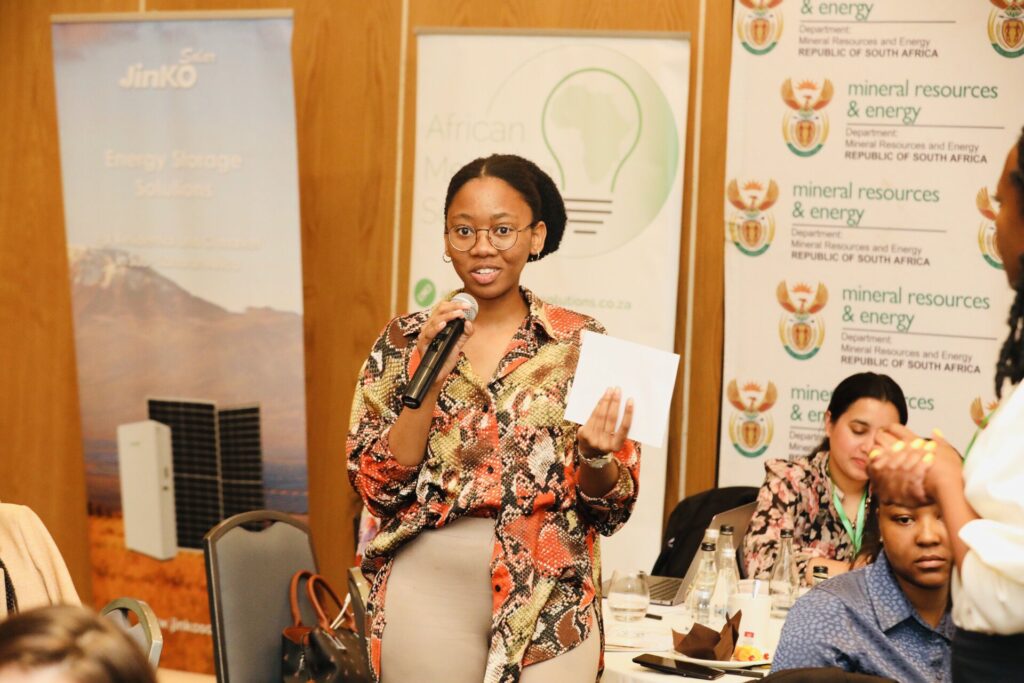
Surprisingly, the economics graduate and SA Youth Economic council spokesperson says that economics was never the plan.
“Growing up as a bright learner, I was always directed towards conventional career paths such as being a medical doctor, an accountant, an engineer or any other quintessential profession. I guess out of ignorance or neglecting a deep self audit, I went to Wits University to pursue an accounting degree with the hopes of becoming a CA.
“I think that it’s also worthwhile to mention that at a young age, as a black child, you’re really searching for opportunities to study what will give you immediate access to economic liberation, so it’s no wonder we end up making uninformed academic and career choices,” said Msomi.
In the second year of her accounting, she had an existential crisis and felt so out of touch with herself and the academic material with a constant feeling of “there’s more to me than this”.
“I started looking back at all the things I was passionate about in high school such as public speaking, debating, advocacy work and development. I also prayed about it a lot. At that, I had begun the journey of trying to get to know God for myself, posing so many questions about the purpose of life because it surely had to be bigger than debits and credits (lol, no offense to accounting students).
Fatefully, in the end, it all started to make sense again. Her upbringing was filled with the importance of facilitating the development of others, which she saw her parents do for most of her life, and her understanding of God creating all of us for a unique purpose that serves the community at large then started to make the search for her life purpose easier.
“After having done economics and a minor subject in my first year, I realised how the subject helped me answer the questions I had about the world like “Why are some nations poor while others are rich?” or “How do we make society more productive?”. The need to have those questions answered and to contribute to formulating those answers drew me to the field of study and continue to inform my post graduate studies as well,” said the spokesperson.
Seemingly, the gift of being an orator and communicator is one that she has always possessed and tried to tap into often.
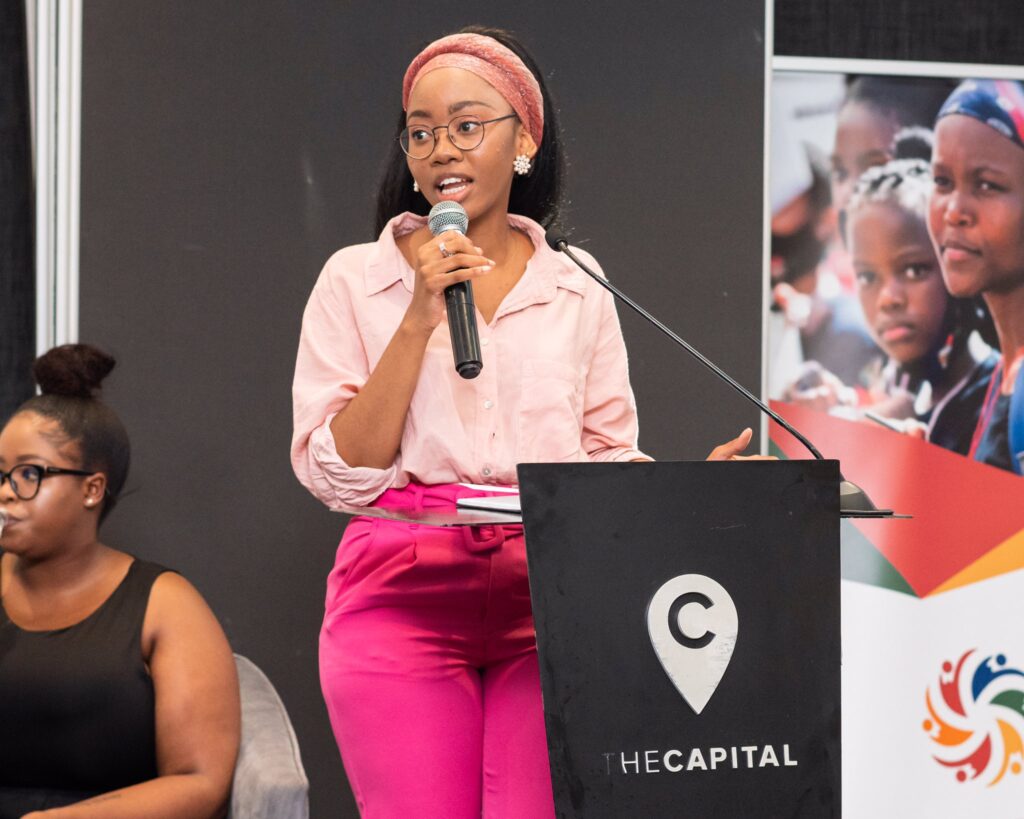
“If there’s one thing about life I’ve learnt is that it leaves us with clues about who we are. For as long as I’ve been able to speak I’ve never stopped. I was always that girl in literature classes that would have endless perspectives on a poem or story. I was always that student that you’d find in a debating contest or speech competition. When I also look at my family history, I’m often told of past relatives of mine who were orators and who were involved in politics especially during the days of apartheid. So, I also credit the innate connection I have to advocacy and speaking to those who came before me.
“One can obviously never predict that they may land a specific role one day, but I believe that one step often leads to the next. From the skills I developed a high school debater (shoutout to my high school debating mate, Lwazi Mpulu, who witnessed the rough ground I started from), to my journey as a community organizer in Durban through my own organization, Khanyisa Foundation, all the way through getting involved in advocacy work with organizations such as Rethinking Economics for Africa, the SA Student Solidarity Foundation for Education etc, it’s all worked together to implicitly prepare me for the role of serving as the National Spokesperson of SAYEC,” said Msomi.
Responding to how she has faced and managed challenges in her journey as a young black woman in her space, Msomi said she had always been aware of the imminent dialogue regarding women’s rights, equality and equity.
“In fact, back in 2018, I began reading quite a bit of feminist literature and I was awakened to the systemic challenges that women, more especially black women, face in the economy and society.
However, I think as my exposure to places of decision making in South Africa across government and business started to increase, I realized that we have a big problem to deal with. The reality is that it is a man’s world and as women, we are still working 10x harder to garner the same respect in our fields of work than men. It also forces you to confront your own learned behaviors that you were either taught growing up or acquired due to societal norms about women having to be “nice, polite and respectable”. Many spaces in South Africa are still boys clubs. Political heavyweights in SA are men, JSE C-Suite executives are men and the economics field, lo and behold, is a white men ruled boys club,” said the spokesperson.
Msomi added that being aware of those realities have made her intentional about ensuring that more women are seated at the table and has forced her to first overcome her own limitations, passed on to her and then work towards changing the landscape of the spaces she finds herself in.
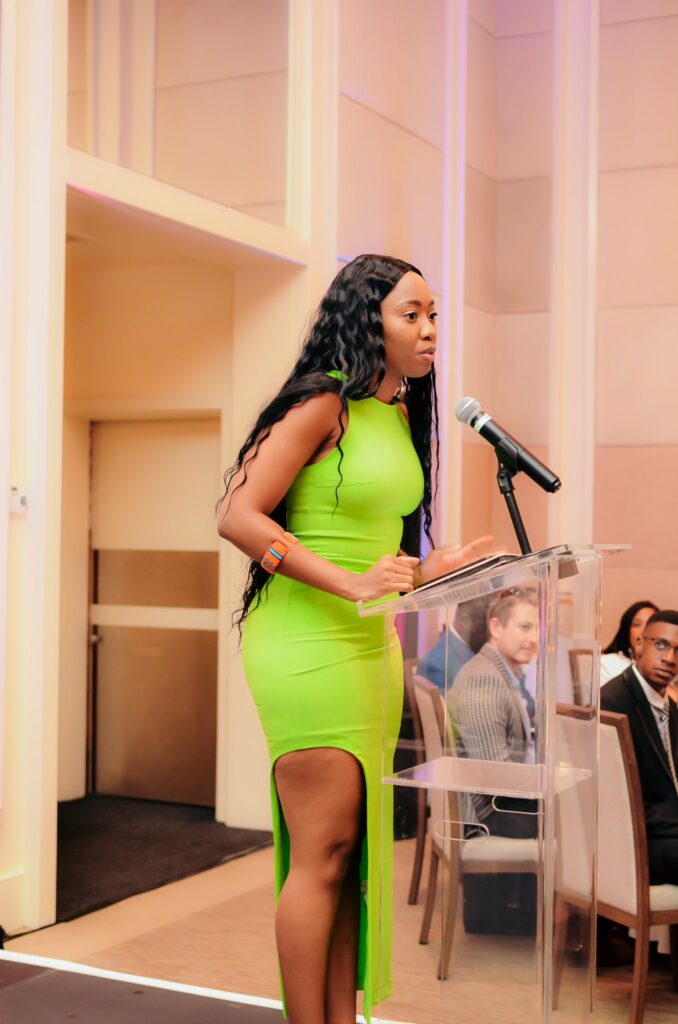
“From ensuring that there’s some gender mix in speakers we have at SAYEC events to empowering young girls through Khanyisa Foundation projects, it’s made me value tangible efforts to transform the space of economics and politics.
P.S For any woman who finds herself in male dominated spaces, I highly recommend that you read Sheryl Sandberg’s “Lean In”! The ultimate feminist anthem,”
Her work ethic, which may surprise some considering her age, Msomi believes it is definitely inspired and guided by the values instilled in me by her parents.
“My father is a man whose work ethic is out of this world. Having served as a Metro Police officer for many years while also having a stint at entrepreneurship years ago and being incredibly successful at it, I learnt from him that hard work actually works. His work ethic and laser-like focus is the reason for me being a Wits economics graduate, a well spoken young woman and a person who adds value in every organisation I find myself in. My parents taught me the importance of always making the most of every opportunity through devoting oneself to the task in front of them.”
The economics graduate is also motivated by the immense contribution she sees herself making in South Africa and the African continent as a whole.
“Unfortunately, our issues are many. From poverty, inequality, lack of equity and development, things cannot remain the way they are. The fact that we still have young people who cannot access education due to funding or the presence of shack dwellings in our country, it all motivates me to learn as much as I can through my education and get into positions of influence and decision making one day to decisively implement policies that solve these issues for our people,” said the graduate.
“I often say that if I had to give someone a 30 second trailer of my life, they would be very overwhelmed by it. While God has blessed me with so many opportunities, to whom much is given, much is required. A typical day involves balancing academic work, spokespersoning and advocacy, the ad hoc work I take on, my mental and physical health and trying to always stay connected to my family and friends.”
Msomi emphasized the role of education in her duties of being a spokesperson and advocate for inclusion of young people in the economy, saying that it is one thing to have a desire to solve a problem but it is another thing to know how to do so.
“I cannot overemphasize how the skills I’ve learnt have capacitated me to solve the complex economic problems I was always curious about. My field of study has helped me immensely with economic policy formulation and the understanding of the tenets of a functional economy. Even though I am furthering my education and will continue to do so, I think that without the basics of my undergraduate degree, I wouldn’t be able to add value in many of the non-profit spaces I find myself in,” said Msomi.
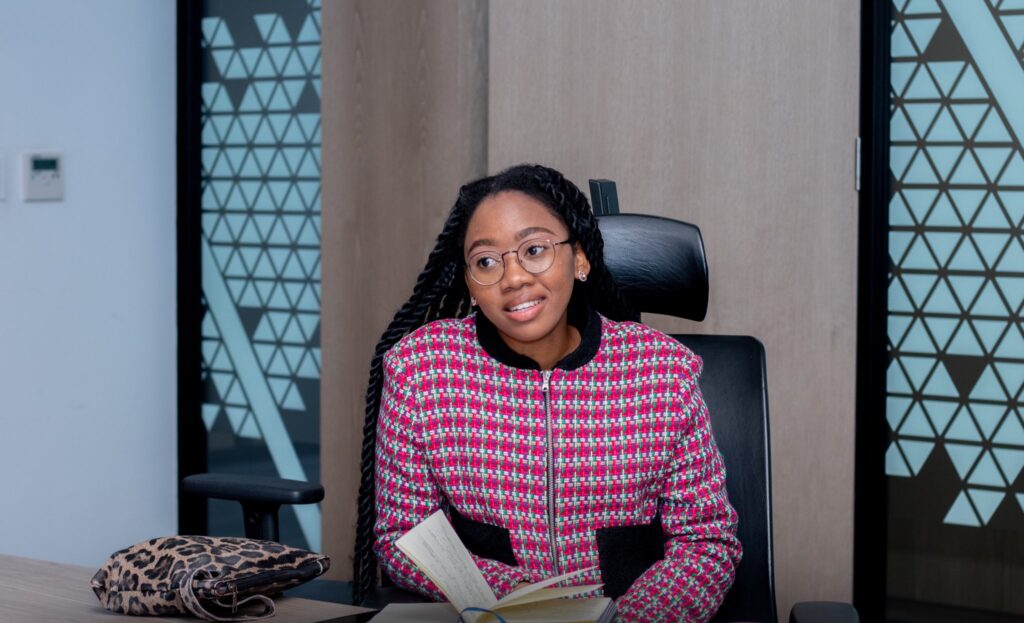
Nounouche asked the budding changemaker a few questions to get to know her better:
A day in the life of Sthandiwe Msomi
On a normal day, I’m up at 6:30. Every day (or at least on most days), I start with a prayer and a Bible scripture to dedicate the day to God. Next would be a workout for my physical health paired with either a podcast or a Beyonce song (I swear, a Beyonce track motivates you to do an extra 15 minutes on the treadmill, lol!). I’m doing my honors degree in economics this year so on most days of the week, I’ve got morning or evening classes scheduled and assignments to submit. Outside of that, I also work as a graphic designer for quite a few organisations (a skill completely self taught on the internet). So, I’d normally have meetings with the various organisations I work for or I’d be working on design material as well. In the midst of all of this, I’m also such a bookworm. I try to make time to read economic literature to broaden my knowledge and schools of thought. I once heard that leaders are readers, so I take reading very seriously! In between this, I chat to my family through our group chat, or through phone calls, just to always stay in touch with them (because it really is a long way from Durban). My friends also bring in tons of laughter through video calls during the day to catch up. I definitely haven’t found the perfect balance but, I’ve learnt to stay present and make the most of the activities of the day.
Her creative interests
I have a huge knack for making things look good, aesthetically pleasing and palatable. I absolutely love doing creative design work and communicating people’s messages in a creative way. Last year, I had the opportunity to design the magazine cover for the SAIBPP100 publication, a magazine that profiled the top 100 black property industry leaders in South Africa! It was an opportunity of a lifetime and I’m incredibly grateful to SAIBPP for affording me the opportunity to do so (digital magazine link: https://saibpp100.co.za/issue1/#). The ad hoc work in creative & communications work continues through my own company, Amasomi Media, as and when I’ve got the capacity to take on more work.
I absolutely love on the ground, community organizing work and engaging with young people, especially in high schools through Khanyisa Foundation. It helps me bring life to the academic element of economics and remember that these high level issues I often talk about have rela life impacts on ordinary young people.
Msomi throwing it forward to the future
There is so much that one can do in the field of economics. There’s obviously the distinct paths of going into academia full time, going into highly corporate and for profit spaces and finally the developmental space. Having had exposure to all of these distinct paths, I think I’ve definitely made a resolute decision to find myself using my skills in a big developmental arena. Spaces like the central bank, developmental finance institutions, global economic forums such as the World Trade Organisation or the International Monetary Fund are where I see myself positioned in the field of economics. Aside from needing to channel the impact of these organizations for development on the African continent, I also think that representation matters in these spaces. We need a black woman who will one day serve as the Managing Director of the IMF, we need more black women taking the global stage and influencing global leaders to compete in the global market fairly. That’s where I hope to position myself one day with my career.
What she would change given the chance
Albeit there have been many lessons learned along the way, I wouldn’t change a thing. My story is as good as it is because of all of the good and the bad!
Things she wishes she knew earlier
The first is that imposter syndrome will not assist you in any way. After getting the opportunity to engage with many of our national leaders, I’ve realized that people are really figuring things out. Of course in a professional setting, you’d hope that a policy maker has stress tested their policy to see if it’ll actually work with well sourced data. But outside of the mechanics, people are genuinely putting their ideas to the table, hoping that it works out. I used to think that those who are in decision making spaces are there because they have a certainty of all the economic theories ever written and that would somewhat make me doubt my ability to also contribute and put forward solutions to economic problems that I’m confident in. So, with that in mind, I would definitely say that it’s important to remember that my contribution matters as much as anyone else’s in senior leadership, so girl, speak boldly.
The second thing that I wish I knew was the importance of networking! I’m an introvert by nature. I mean, I love engaging with people from all walks of life, but trust me, when that social battery is depleted, I shut down. But, through my work in the field of economics and even in my creative business endeavors,
What she would tell her younger self
I would say to my younger self and younger women who are still walking the journey of life that it is so imperative to know that your voice, your skills, your perspective, your talent and your dreams matter. All of those things have a place in the world. In fact, we need you to come alive and come into your own so that more women can be inspired to believe that they too can make a contribution and build a better life for themselves.
The world needs fearless leaders driven by a vision that is bigger than themselves. I think that had I known that and understood it, I would’ve put the timidity I had aside and blasted into my career fearlessly. The more we unapologetically tap into our purpose by starting that business, getting into leadership positions, organizing in our communities or even just taking a decision to change the tide in our families, we break the barrier of what’s possible for everyone around us.
The leaders of our liberation movement did that, the first few black women in the field of economics did that, my very own parents did that. On that parting shot, I think I’d want all young women to know that they have permission to be great and what is key is to relentlessly pursue that every single day!


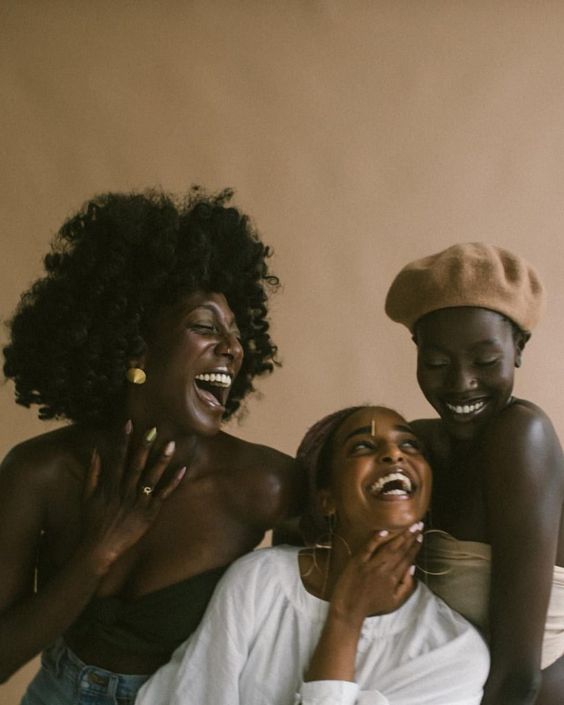

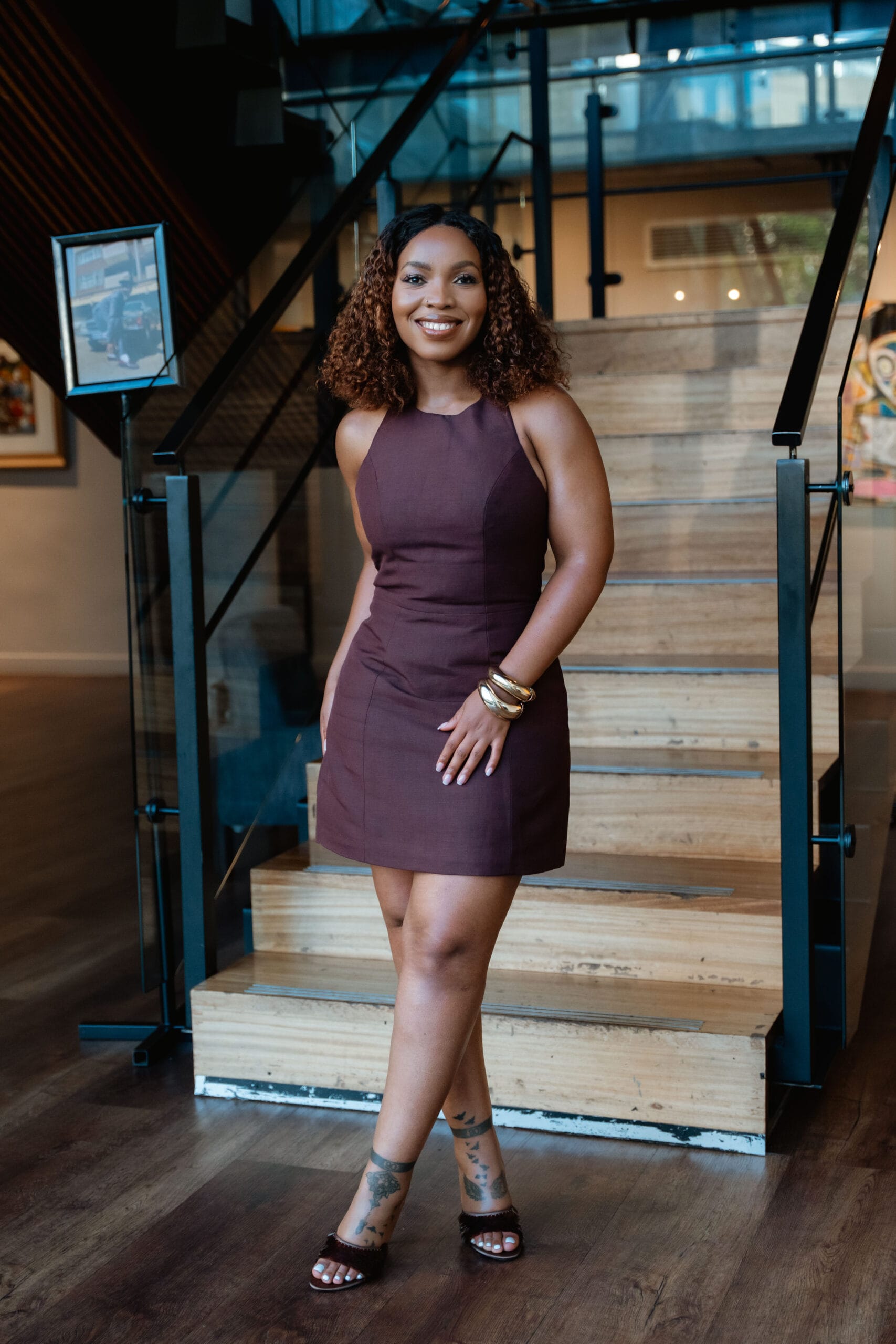
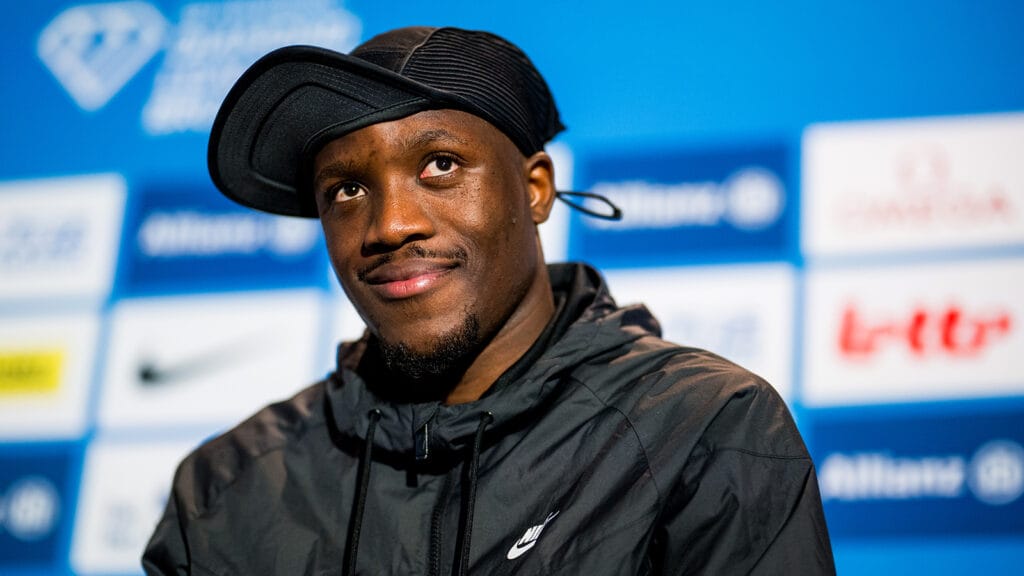
รถพยาบาล
… [Trackback]
[…] Read More to that Topic: nounouche.online/sthandiwe-msomi-is-unapologetic-about-social-change/ […]
วิเคราะห์บอลวันนี้
… [Trackback]
[…] Here you will find 98510 more Information to that Topic: nounouche.online/sthandiwe-msomi-is-unapologetic-about-social-change/ […]
บุหรี่นอกเก็บเงินปลายทาง
… [Trackback]
[…] Here you can find 57273 more Information on that Topic: nounouche.online/sthandiwe-msomi-is-unapologetic-about-social-change/ […]
Recommended Reading
… [Trackback]
[…] Read More on that Topic: nounouche.online/sthandiwe-msomi-is-unapologetic-about-social-change/ […]
ยาเพิ่มขนาด
… [Trackback]
[…] Read More on that Topic: nounouche.online/sthandiwe-msomi-is-unapologetic-about-social-change/ […]
เสริมหน้าอก
… [Trackback]
[…] Read More Information here on that Topic: nounouche.online/sthandiwe-msomi-is-unapologetic-about-social-change/ […]
Khủng bá»
… [Trackback]
[…] There you will find 84783 more Info on that Topic: nounouche.online/sthandiwe-msomi-is-unapologetic-about-social-change/ […]
เช่ารถตู้พร้อมคนขับ
… [Trackback]
[…] Read More Info here to that Topic: nounouche.online/sthandiwe-msomi-is-unapologetic-about-social-change/ […]
10 อันดับเลขเด็ดงวดนี้ เลขมงคล มาแรง
… [Trackback]
[…] Here you can find 67637 more Information on that Topic: nounouche.online/sthandiwe-msomi-is-unapologetic-about-social-change/ […]
ดูหนัง jav
… [Trackback]
[…] Here you will find 42798 additional Info on that Topic: nounouche.online/sthandiwe-msomi-is-unapologetic-about-social-change/ […]
promo
… [Trackback]
[…] Read More here on that Topic: nounouche.online/sthandiwe-msomi-is-unapologetic-about-social-change/ […]
Compre tabletas Restoril Temazepam
… [Trackback]
[…] Find More here to that Topic: nounouche.online/sthandiwe-msomi-is-unapologetic-about-social-change/ […]
upx1688.site
… [Trackback]
[…] Find More Info here on that Topic: nounouche.online/sthandiwe-msomi-is-unapologetic-about-social-change/ […]
herbal products
… [Trackback]
[…] Read More on that Topic: nounouche.online/sthandiwe-msomi-is-unapologetic-about-social-change/ […]
som777
… [Trackback]
[…] Find More on to that Topic: nounouche.online/sthandiwe-msomi-is-unapologetic-about-social-change/ […]
เว็บพนันออนไลน์เงินวอน
… [Trackback]
[…] Find More here on that Topic: nounouche.online/sthandiwe-msomi-is-unapologetic-about-social-change/ […]
kc9
… [Trackback]
[…] Read More Information here to that Topic: nounouche.online/sthandiwe-msomi-is-unapologetic-about-social-change/ […]
SBOBETCLUB168
… [Trackback]
[…] Find More Information here to that Topic: nounouche.online/sthandiwe-msomi-is-unapologetic-about-social-change/ […]
บาคาร่า ufa11k
… [Trackback]
[…] Read More to that Topic: nounouche.online/sthandiwe-msomi-is-unapologetic-about-social-change/ […]
โคมไฟ
… [Trackback]
[…] Read More to that Topic: nounouche.online/sthandiwe-msomi-is-unapologetic-about-social-change/ […]
สล็อตเกาหลี
… [Trackback]
[…] Read More here to that Topic: nounouche.online/sthandiwe-msomi-is-unapologetic-about-social-change/ […]
ตู้ล่าม
… [Trackback]
[…] Read More here to that Topic: nounouche.online/sthandiwe-msomi-is-unapologetic-about-social-change/ […]
VM9
… [Trackback]
[…] Info to that Topic: nounouche.online/sthandiwe-msomi-is-unapologetic-about-social-change/ […]
วางระบบเน็ตเวิร์ค ระยอง
… [Trackback]
[…] Read More on to that Topic: nounouche.online/sthandiwe-msomi-is-unapologetic-about-social-change/ […]
รับงานเอง
… [Trackback]
[…] Read More Info here to that Topic: nounouche.online/sthandiwe-msomi-is-unapologetic-about-social-change/ […]
ktvvip
… [Trackback]
[…] Read More Info here on that Topic: nounouche.online/sthandiwe-msomi-is-unapologetic-about-social-change/ […]
sweet bonanza slot
… [Trackback]
[…] Read More on to that Topic: nounouche.online/sthandiwe-msomi-is-unapologetic-about-social-change/ […]
Alexander Debelov Entrepreneur
… [Trackback]
[…] There you can find 83287 additional Information to that Topic: nounouche.online/sthandiwe-msomi-is-unapologetic-about-social-change/ […]
รับจด อย ด่วน
… [Trackback]
[…] There you will find 46682 more Info on that Topic: nounouche.online/sthandiwe-msomi-is-unapologetic-about-social-change/ […]
ศูนย์ดูแลผู้สูงอายุ
… [Trackback]
[…] Read More to that Topic: nounouche.online/sthandiwe-msomi-is-unapologetic-about-social-change/ […]
電子 菸
… [Trackback]
[…] There you can find 98266 additional Info on that Topic: nounouche.online/sthandiwe-msomi-is-unapologetic-about-social-change/ […]
https://avicenna-stom.kz/v2
… [Trackback]
[…] Find More here on that Topic: nounouche.online/sthandiwe-msomi-is-unapologetic-about-social-change/ […]
บาคาร่า sexy168
… [Trackback]
[…] Read More to that Topic: nounouche.online/sthandiwe-msomi-is-unapologetic-about-social-change/ […]
เว็บตรง บาคาร่า
… [Trackback]
[…] Find More on to that Topic: nounouche.online/sthandiwe-msomi-is-unapologetic-about-social-change/ […]